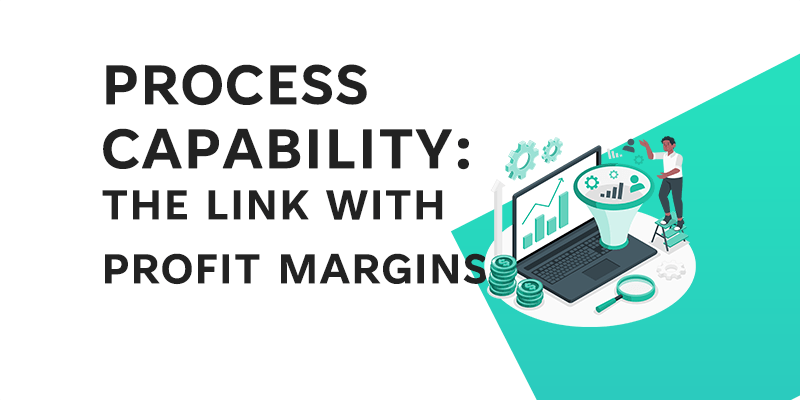Organizations constantly work to improve their processes, cut waste, and boost overall efficiency in today’s cutthroat business environment. Lean Six Sigma has become a potent methodology for process improvement in the pursuit of these objectives. What about experts, though? Does their Lean Six Sigma certification make financial sense?
Lean Six Sigma certification has grown in popularity as a useful credential that attests to a person’s proficiency with this methodology. It gives professionals a wide range of problem-solving tools, data analysis abilities, and a methodical strategy for fostering continuous improvement. However, investing in certification entails both time and financial costs.
Table of Contents
Understanding Lean Six Sigma Certification
What is a Lean Six Sigma Certification?
A professional credential known as a Lean Six Sigma certification shows a person’s proficiency in using Lean Six Sigma methodologies to achieve process improvement and operational excellence. One’s knowledge and abilities in this methodical approach to problem-solving and continuous improvement are validated.
Combining Lean and Six Sigma, two potent methodologies, reduces variations and defects while focusing on waste elimination and process streamlining. Organizations can achieve notable gains in productivity, quality, and customer satisfaction by combining these strategies.
Different Certification Levels
Each level of the Lean Six Sigma certification structure denotes a different level of responsibility and expertise. These levels consist of:
Yellow Belt: The Yellow Belt credential offers a fundamental comprehension of Lean Six Sigma concepts and methods. Yellow Belts frequently support projects that are being led by Green Belts or Black Belts as team members.
Green Belt: Having a Green Belt certification shows that you have a thorough understanding of Lean Six Sigma methodologies. Green Belts oversee more compact improvement initiatives within their assigned departments or spheres of authority. They collaborate closely with Black Belts to analyze data, find the source of problems, and put fixes in place.
Black Belt: A black belt represents a high level of proficiency in lean six sigma. Black Belts are in charge of organizing and overseeing bigger organizational improvement initiatives. They have a thorough understanding of project management, change management, and statistical analysis.
Master Black Belt: The Master Black Belt certification is the highest level of Lean Six Sigma certification. The deployment of Lean Six Sigma within the company is strategically steered by Master Black Belts, seasoned professionals. Green Belts and Black Belts receive coaching, mentoring, and leadership from them, promoting continuous improvement at the organizational level.
Certification Process and Requirements
The following steps are typically included in the Lean Six Sigma certification process:
- Training: Professionals seeking Lean Six Sigma certification go through training courses that cover the core ideas, procedures, and equipment of the methodology. These training courses may be delivered by authorized training providers or made available by academic institutions.
- Project Experience: Candidates are frequently required by certification programs to complete practical projects that show their mastery of Lean Six Sigma concepts. These initiatives are designed to produce quantifiable results and demonstrate the candidate’s aptitude for problem-solving and procedure improvement.
- Examination: Candidates must typically pass a certification exam after completing the training and project requirements. Their understanding of the methodologies, tools, and principles of Lean Six Sigma is assessed by the exam. Depending on the certification level, the exam’s format and level of difficulty may change.
It’s important to remember that different certifying bodies and organizations may have different requirements and certification procedures for Lean Six Sigma. It’s a good idea to do some research and pick a reputable certification program that fits your professional aspirations.
Professionals looking to start a journey of process improvement and professional development must fully comprehend the fundamentals of Lean Six Sigma certification, including its levels, certification process, and requirements. To assist professionals in deciding whether Lean Six Sigma certification is worthwhile for their career paths, we will examine the advantages and factors of this certification in the following sections.
Benefits of Lean Six Sigma Certification
Knowledge and Understanding of Lean Six Sigma Principles and Methodologies
One of the main advantages of obtaining a Lean Six Sigma certification is the chance to develop a thorough understanding of the ideas, techniques, and equipment that support process improvement. Professionals gain extensive knowledge of Lean Six Sigma concepts, including value stream mapping, root cause analysis, process mapping, and statistical analysis, through the certification training. They can use a structured approach to problem-solving and the ability to spot waste and inefficiencies in processes thanks to this knowledge.
Increased Marketability and Career Advancement Opportunities
Read our blog post on Green Belts vs Black Belts to see what typical salaries are.
Certification in Lean Six Sigma raises professionals’ marketability and creates a variety of career advancement possibilities. As it demonstrates their dedication to quality, efficiency, and continuous improvement, many businesses give priority to hiring candidates who have earned their Lean Six Sigma certification. Being in possession of this certification can help professionals stand out from their peers and make them desirable candidates for jobs in process improvement, quality management, project management, and operations management.
Ability to Lead and Contribute to Successful Process Improvement Projects
Professionals who have earned a Lean Six Sigma certification have the abilities to effectively lead and contribute to projects that improve processes. They are taught how to set project parameters, gather and analyze data, pinpoint the causes, and put effective fixes in place. With the help of these skills, they can lead cross-functional teams in the application of Lean Six Sigma methodologies and produce quantifiable results.
Improved Problem-Solving and Data-Driven Decision-Making Skills
Professionals with a Lean Six Sigma certification have improved problem-solving abilities and are better prepared to make decisions based on data. They gain knowledge of statistical analysis software, data interpretation, and decision-making based on empirical evidence. These abilities enable professionals to address problems with efficiency and precision in both process improvement projects and common problem-solving scenarios.
Recognition and Credibility Within the Industry
The Lean Six Sigma certification is highly regarded and credible in the field. Employers and coworkers are aware of the diligence and self-control needed to obtain this certification. A dedication to excellence, ongoing improvement, and a methodical approach to problem-solving are all displayed by certification. It establishes professionals as authorities in their field and improves their credibility and professional reputation.
Cost and Time Considerations
Financial Investment Required for Lan Six Sigma Certification
Professionals considering Lean Six Sigma certification should be aware of the cost commitment. Costs for certification programs typically include training costs, exam costs, and costs for study materials. Depending on the provider and certification level, prices may vary from $100 to over $5000, lower levels like yellow belt are typically below $1000 dollars and black belts being $2000 to $3000. To find a program that is within your financial reach, it is critical to investigate and contrast various certification options. It is worth exploring options with your employer to see if they will support you with funding for the certification.
Balancing the Cost with Potential Career Benefits
Lean Six Sigma certification has a cost, but it’s important to weigh that expense against any potential career advantages. Think about the effect the certification might have on your earning potential, job prospects, and career trajectory. Due to their specialized skills and demonstrated success in process improvement, Lean Six Sigma certified professionals frequently have an advantage over their peers in the job market and may be qualified for higher-paying positions.
Time Commitment for Certification, Training and Exam Preparation
Lean Six Sigma certification requires extensive study time for the required training and exams. Depending on the certification level, training programs can last anywhere from a few days to several weeks. The time needed to finish the training, prepare for the certification exam, and possibly work on a real-world improvement project should all be taken into consideration by professionals. A successful certification journey depends on balancing the time commitment with already-existing personal and professional obligations.
Industry Relevance and Demand
Industries and Sectors Where Lean Six Sigma is Highly Valued
The Lean Six Sigma methodology is highly regarded across many industries and is cross-industry. Lean Six Sigma has been adopted by sectors like manufacturing, healthcare, financial services, logistics, information technology, and telecommunications to promote operational excellence and provide better customer experiences. Lean Six Sigma in manufacturing aids in streamlining production procedures, lowering defects, and increasing productivity.
It enhances patient care in the healthcare industry, decreases waiting times, and gets rid of administrative process waste. Lean Six Sigma is used by financial services companies to streamline operations, reduce mistakes, and improve client satisfaction. Lean Six Sigma can be used in a variety of industries and is in demand due to its adaptability and efficiency.
Job Market Demand for Lean Six Sigma Certification
Lean Six Sigma certified professionals are highly sought after across all industries. Employers value people with the expertise and knowledge necessary to advance process improvement and operational effectiveness. Lean Six Sigma certified candidates are frequently required for or preferred for positions with titles like Lean Six Sigma Specialist, Process Improvement Manager, Continuous Improvement Analyst, and Quality Assurance Manager.

Demand increased in the early 2000s as Lean and Six Sigma rose in popularity an has been fairly steady in demand since then showing Lean Six Sigma is here to stay.
Both large organizations and small to medium-sized businesses are in need of Lean Six Sigma experts. Professionals can position themselves as competitive candidates and raise their chances of securing desired roles in process improvement and quality management by obtaining Lean Six Sigma certification.
Alternative Paths for Skill Development
Other methods for Gaining Lean Six Sigma Knowledge and Skills
Although Lean Six Sigma certification is a respected credential, it is not the only way to learn this methodology and develop your skills. Professionals who might prefer different paths or have time and financial constraints can explore other options for skill development. Lean Six Sigma is the subject of many books, online resources, and websites such as this one that offer in-depth knowledge and helpful advice. These resources provide self-study options, allowing users to set their own pace and customize their learning to meet their individual needs.
To get started you could look at our Lean Six Sigma Yellow Belt Course for free
Self-Study Resources, Online Courses, and Workshops
Self-study materials are essential for developing Lean Six Sigma knowledge and abilities. Leading Lean Six Sigma authorities’ books, like “The Lean Six Sigma Pocket Toolbook” by Michael L. George or “Lean Six Sigma for Dummies” by John Morgan and Martin Brenig-Jones, offer detailed instructions and real-world examples. There are also online classes and workshops that provide flexibility and interactive learning opportunities. Numerous Lean Six Sigma courses are available, taught by professionals in the field, on websites like Coursera, Udemy, and LinkedIn Learning. With the help of these options, professionals can learn Lean Six Sigma concepts and techniques without pursuing formal certification.
Pros and Cons of Certification vs Self-learning
It’s crucial to weigh the advantages and disadvantages of certification versus self-learning when thinking about Lean Six Sigma skill development. A structured curriculum, recognizable credentials, and validation of expertise are all provided by certification, which can improve career prospects. Additionally, it offers chances for professional collaboration and networking. However, self-learning offers greater flexibility, lower costs, and more customized learning opportunities. Self-learners have the flexibility to focus on particular subjects or areas, schedule their learning around their schedules, and use resources that best meet their learning needs.
The decision between certification and self-learning ultimately comes down to personal circumstances, professional objectives, and learning preferences. To choose the best course of action for acquiring Lean Six Sigma knowledge and skills, professionals should carefully consider their needs and available resources.
Conclusion
In conclusion, for professionals looking to improve their knowledge, skills, and career prospects, obtaining a Lean Six Sigma certification may be a wise investment. A structured framework for process improvement is provided by the certification, giving people the tools and methodologies they need to increase productivity, cut down on waste, and boost overall quality. Professionals can boost their employability, gain access to new career opportunities, and participate in productive process improvement initiatives by earning a Lean Six Sigma certification.
It’s crucial to take into account the expenses and time commitments related to certification, though. Self-study and online resources are alternatives that offer adaptable options for skill development, enabling professionals to learn about Lean Six Sigma at their own pace and within their budget.
The choice to pursue Lean Six Sigma certification or select alternative skill development pathways ultimately depends on personal preferences, goals, and resources. It’s critical to evaluate the relevance of the industry, balance costs and benefits, and select a course that supports long-term career goals.
Whatever the route taken, adopting Lean Six Sigma methodologies and principles can enable professionals to have a significant impact, promote continuous development, and support the success of their organizations in a highly competitive business environment.








